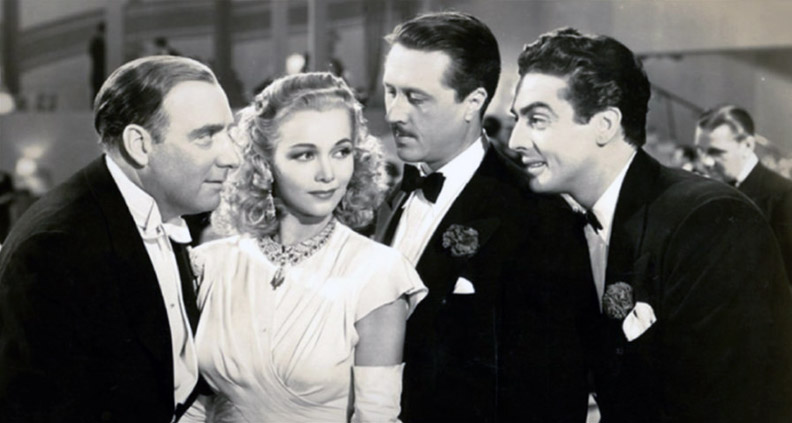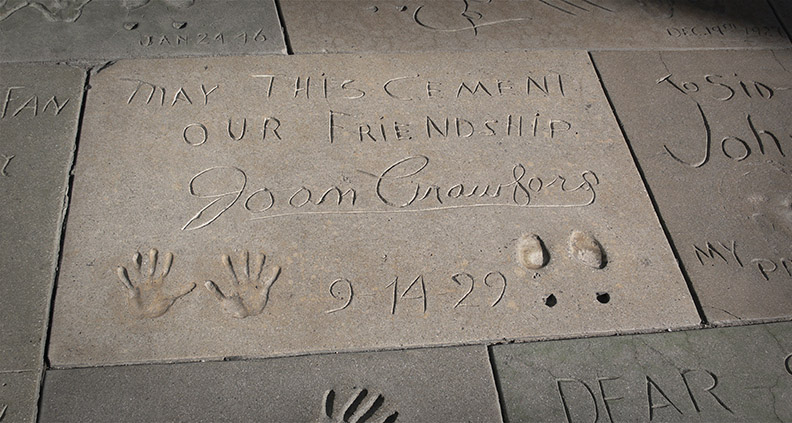From the Archives: Karina Longworth on Making ‘You Must Remember This’
EDITOR’S NOTE: The following article originally ran in 2017 as part of our Podlight series. After nearly a year in hibernation, You Must Remember This has returned with a brand-new season. To celebrate, we’re republished this interview with minor edits to the original text. Enjoy!
***
Film critic and author Karina Longworth’s historical deep-dive You Must Remember This has quickly become indispensable listening for fans of classic Hollywood. Full of detailed research, literary storytelling and atmospheric production values, the show’s exploration of “the secret and/or forgotten history of Hollywood’s first century” is a welcome change of pace in a movie podcast landscape too often dominated by unstructured conversation and a blinkered obsession with new releases (not to mention: too many dudes.)
Initially an attempt to reorient her career in a more historically-minded direction, You Must Remember This has become “more than a full-time job” for Longworth, who until 2012 served as Film Editor at LA Weekly. Longworth’s topics, organized into thematically linked seasons, have touched on everything from Charlie Chaplin’s pacifism to Charles Manson’s strange friendship with Beach Boy Dennis Wilson to starlet Hedy Lamarr’s pioneering work as radio technologies inventor during World War II.
We recently caught up with Longworth to talk about how the show is put together, what showbiz stories interest her (and which ones don’t) and find out what podcasts she listens to for fun. Here’s the conversation:
KARINA LONGWORTH

So for anyone who hasn’t heard it before, what is “You Must Remember This” and how did it get started?
Longworth: As I say in every episode, it’s a podcast about the secret and/or forgotten history of Hollywood’s first century. I started it in 2014 because I was trying to figure out a way to transition my writing career out of writing about new movies into writing about film history. I just wanted to create something as a sort of showcase for the kind of research and writing I wanted to do.
Earlier in the show’s existence you did a lot of one-off episodes. What made you start grouping them into thematically unified seasons?
Longworth: The research is really hard, it’s a little easier if I can use the time in the hiatus between seasons to do a lot of research on one specific set of ideas tied to a time period or person rather than having to start from scratch every week on a new topic.
What comes first? Do you start with a theme or do you look at what stories you have and see if a theme emerges?
Longworth: It’s been different for every season, but generally I think of it all as one story. Like, all of the Charles Manson episodes are one story. All of the Blacklist episodes are one story. So once I know I want to do an overarching story like that I try to figure out what would be the best topics to fit into that. I’m contractually required to produce a certain number of episodes, so then I would have to find 12 topics.
How is an episode typically produced?
Longworth: Before I do any episodes, I figure out what the all of the subjects for the season are going to be, so I have to do a bare minimum of research about that topic to know that there’s an episode there. Then I do the in-depth research on the episode topic. I read everything I can get my hands on in the amount of time that I have. Then I write a script, which is just a prose document, usually between 4,500 or 6,500 words. Then I go into the bathroom where I have my recording stuff and I record it. I send the audio files plus any movie clips or anything else I want in the episode to Sam Dingman, who works for the Panoply network and who edits my show. He sends me a draft, usually on Friday afternoons, and I listen to it and send him any notes I have about any changes.

A lot of your episodes don’t have happy endings. Do you ever get burned out on the human misery of Hollywood?
Longworth: People are always asking me, “Why don’t any of these stories have happy endings?” or “Did anyone live a happy life in Hollywood?” and the subject of the episode I’m working on now, basically her whole time in Hollywood was super happy. Everything about her life was completely perfect, and then unfortunately she died. I find her story incredibly boring, but I’m already committed to doing it. I know a lot of people think this person is very interesting, but I don’t. I’m more interested in people’s lives where they have some kind of struggle, or they have expectations they’re not able to meet or something like that. I just find that to be more real and interesting and exciting.
What has doing the podcast enabled you to do professionally? How does it fit into your overall career at this point?
Longworth: It’s more than a full-time job. It’s difficult to do anything else, but I did get a book deal because of the podcast, so over the past two years I’ve been writing a book. I’ve had a lot of opportunities and a lot of offers to do a lot of different things, but unfortunately I don’t have any time. When I was in my 20s I just wanted to work all the time and was extremely ambitious and would say “yes” to anything that came towards me. And now I feel the complete opposite. I want to work as little as possible. I really value having my time to myself.
What do you think we need more of in the podcasting space right now?
Longworth: I feel like there’s not enough about anything done by women. Sometimes I’ll stop listening to certain pop culture podcasts because they’re talking about things from a very male perspective or they’re talking about culture men are interested in but ignoring culture women that are interested in. You can take this broadly, but I’m really interested in fashion, fine arts, photography and stuff like that. If there are any good podcasts about those kinds of things, then I don’t know about them or haven’t been able to find them.
Finally, can you give us three good podcast recommendations?
Longworth: I love Molly Lambert’s podcast North Mollywood. I love Jenna Wortham and Wesley Morris’s podcast Still Processing. Probably my all-time favorite podcast is called Effectively Wild—it’s this baseball podcast that really appeals to me as someone who thinks about baseball in a nerdy way. On one of my favorite episodes [the hosts] were answering a hypothetical question from a reader: how long could you continue to play on a baseball field if there were no more groundskeepers? So they spent half an hour debating how long it takes for grass to grow. Stuff like that is really up my alley. That’s what I want to listen to.
You Must Remember This is back, with a full season of new episodes covering topics related to the controversial history of Disney’s Song of the South. For more, check out the show’s website.